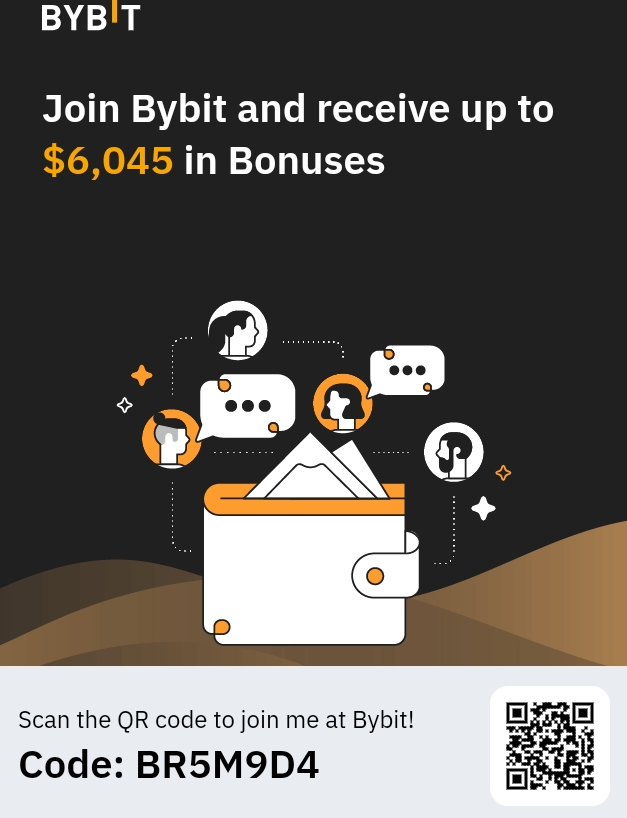Main Points
- Most Nigerian Crypto Enthusiasts have circumvented the government ban via use of VPN.
- Binance has since delisted Nigerian Currency-Naira derivatives from their exchange.
- Bybit has given the needed succor to defiant Crypto enthusiasts with the Naira derivatives.
- Nigerians can make deposits through Peer-To-Peer (P2P) trading.
- The ban on Cryptocurrency in Nigeria may not be ending soon.
In recent years, the world has witnessed an explosive growth in cryptocurrency adoption, with Nigeria emerging as one of the leading countries in terms of crypto transactions. Despite this, the Nigerian government has adopted a stringent stance on cryptocurrency, implementing measures aimed at curbing its use. In 2021, the Central Bank of Nigeria (CBN) issued a directive that effectively banned banks and financial institutions from facilitating cryptocurrency transactions. This move sent shockwaves through the Nigerian crypto community, but it did not deter the nation’s ever-resilient crypto enthusiasts. Instead, they found ways to defy the ban and continue their participation in the global crypto market.
In this blog post, we will explore how Nigerian crypto enthusiasts have circumvented government restrictions, particularly through the use of Virtual Private Networks (VPNs), and how popular exchanges like Binance and Bybit remain central to their trading activities.
The Nigerian Government’s Stance on Cryptocurrency
The Nigerian government’s decision to ban cryptocurrency transactions via traditional financial institutions was primarily motivated by concerns over the risks associated with digital currencies. These risks include:
- Volatility: Cryptocurrencies are notoriously volatile, with prices subject to rapid and unpredictable changes. This volatility poses a risk to financial stability, especially in an economy like Nigeria’s, which is heavily dependent on oil exports and is vulnerable to external shocks.
- Security: The anonymous nature of cryptocurrencies makes them attractive to individuals involved in illicit activities such as money laundering, fraud, and terrorism financing. The government feared that the rise of cryptocurrencies could exacerbate these issues.
- Consumer Protection: Given the decentralized and unregulated nature of most cryptocurrencies, consumers are at risk of losing their investments without any recourse. The Nigerian government, therefore, sought to protect its citizens from potential financial harm.
Despite these concerns, the government’s approach has faced criticism. Many argue that outright banning crypto transactions stifles innovation and deprives Nigerians of opportunities in the burgeoning global digital economy.
Crypto Enthusiasts Find a Way: The Rise of VPNs
Faced with these restrictions, Nigerian crypto enthusiasts quickly adapted by turning to Virtual Private Networks (VPNs). A VPN allows users to create a secure connection to another network over the internet. By using a VPN, Nigerians can mask their IP addresses and make it appear as though they are accessing the internet from a different country. This is crucial because many cryptocurrency exchanges have complied with the CBN’s directive by restricting access to Nigerian users.
How VPNs Work for Crypto Trading
- Masking Location: VPNs allow users to choose a server in another country, effectively masking their true location. For example, a Nigerian user can connect to a VPN server in the United States or Europe, allowing them to access cryptocurrency exchanges as if they were in that region.
- Bypassing Geo-Restrictions: Many exchanges, including Binance and Bybit, may restrict access to users from certain countries due to regulatory concerns. By using a VPN, Nigerian users can bypass these geo-restrictions and access their accounts on these platforms.
- Enhanced Privacy and Security: Beyond bypassing restrictions, VPNs offer enhanced privacy and security. Given the Nigerian government’s scrutiny of cryptocurrency activities, many users prefer the anonymity that a VPN provides, reducing the risk of their transactions being tracked or monitored.
The Role of Binance and Bybit in Nigeria’s Crypto Landscape
Despite the government’s efforts to clamp down on cryptocurrency trading, platforms like Binance and Bybit remain highly popular among Nigerian users. These platforms offer a wide range of services, from trading to staking, and provide users with access to a global crypto market.
Binance
Binance is one of the largest cryptocurrency exchanges in the world, known for its extensive list of supported cryptocurrencies and user-friendly interface. For many Nigerians, Binance is the go-to platform for buying, selling, and trading digital assets.
- Peer-to-Peer (P2P) Trading: One of the features that have kept Binance popular in Nigeria is its P2P trading platform. Even with the CBN ban, Binance P2P allows Nigerians to trade cryptocurrencies directly with each other, using local bank transfers or other payment methods. This feature has been a lifeline for many crypto enthusiasts in the country.
- Educational Resources: Binance also provides a wealth of educational resources for users, helping them stay informed about the latest developments in the crypto world. This has further solidified its place in the Nigerian market.
Bybit
Bybit is another popular platform among Nigerian crypto traders. Known for its advanced trading features and derivatives products, Bybit has attracted a significant following in Nigeria, particularly among more experienced traders.
- Advanced Trading Tools: Bybit offers advanced trading tools, including margin trading and futures contracts. These features appeal to Nigerian traders looking to maximize their profits in the volatile crypto market.
- No KYC Requirement: Unlike some exchanges that require extensive Know Your Customer (KYC) verification, Bybit allows users to trade without completing KYC, provided their withdrawals remain below a certain threshold. This has made it easier for Nigerian users to continue trading despite the government’s restrictions.
Challenges and Risks of Using VPNs
While VPNs have provided a workaround for Nigerian crypto enthusiasts, they are not without their challenges and risks:
- Security Concerns: Not all VPNs are created equal. Some free VPNs may compromise user security by logging data or selling user information to third parties. It is crucial for users to choose a reputable VPN service that guarantees no-logs and offers robust encryption.
- Legal Implications: Although using a VPN is not illegal in Nigeria, circumventing government restrictions could potentially lead to legal consequences if the government decides to crack down on such activities. Users must be aware of the risks involved.
- Performance Issues: VPNs can sometimes slow down internet speeds, affecting the performance of trading activities. This can be particularly problematic in the fast-paced world of cryptocurrency trading, where timing is crucial.
The Future of Cryptocurrency in Nigeria
The Nigerian government’s restrictive stance on cryptocurrency is unlikely to change in the short term. However, the resilience and ingenuity of Nigerian crypto enthusiasts have shown that the demand for digital currencies remains strong. As the global adoption of cryptocurrencies continues to grow, it may become increasingly difficult for governments to maintain strict bans without stifling innovation and economic opportunity.
In the meantime, Nigerian crypto enthusiasts will continue to find ways to participate in the global crypto market, whether through the use of VPNs, peer-to-peer trading, or other innovative solutions.
Conclusion
The Nigerian government’s ban on cryptocurrency transactions has undoubtedly posed significant challenges for the country’s crypto community. However, the resilience of Nigerian crypto enthusiasts, coupled with the power of technology like VPNs, has allowed them to defy these restrictions and continue engaging with the global cryptocurrency market. Platforms like Binance and Bybit remain central to this activity, offering the tools and services that enable Nigerians to navigate around the ban.
As the world of cryptocurrency continues to evolve, it remains to be seen how the Nigerian government will respond. Will they continue with their hardline stance, or will they eventually recognize the potential benefits of embracing digital currencies? Whatever the outcome, one thing is certain: Nigerian crypto enthusiasts will continue to play a significant role in the global digital economy.

